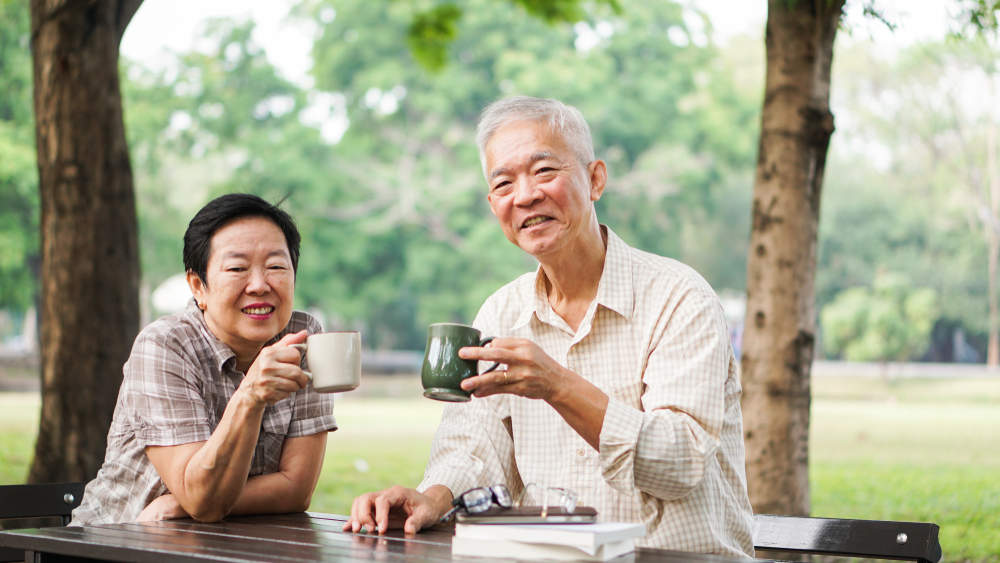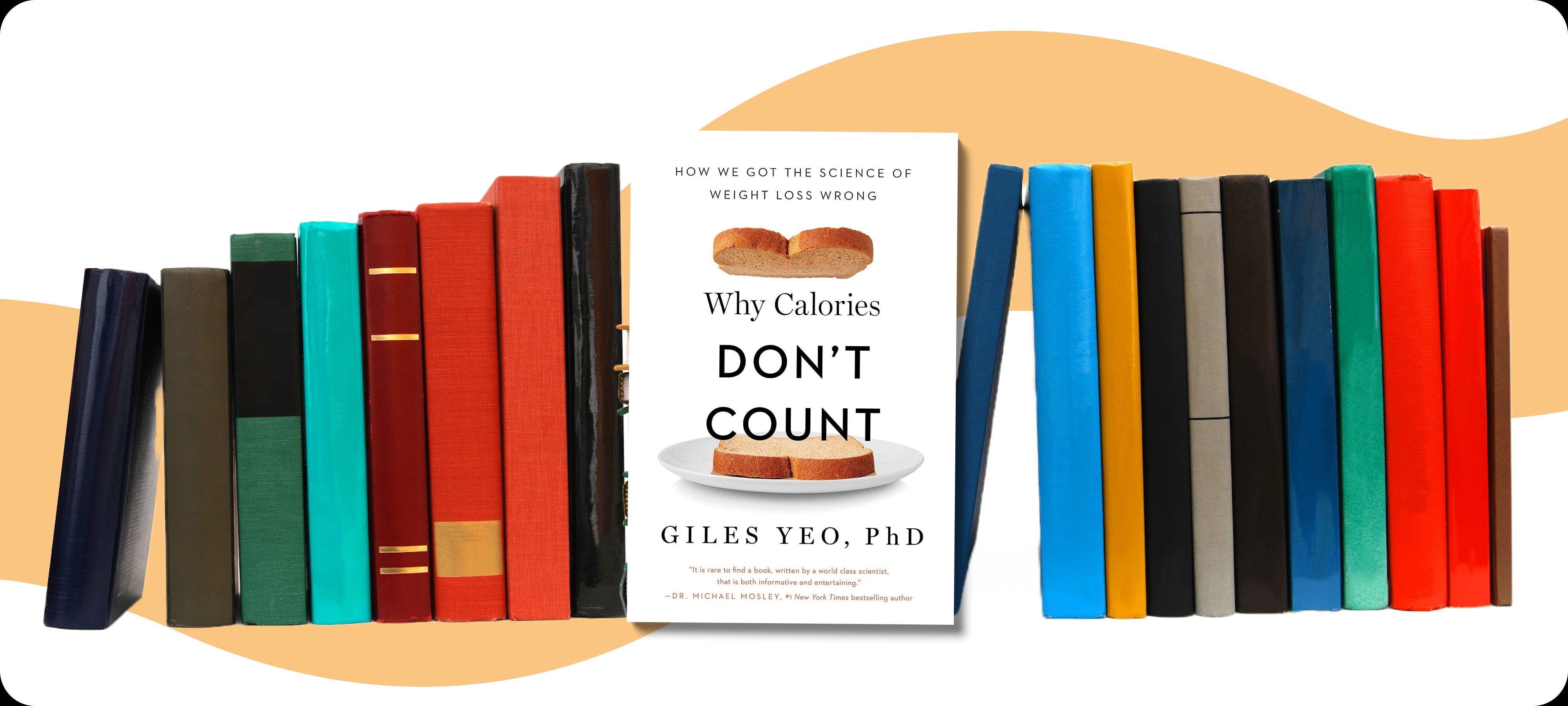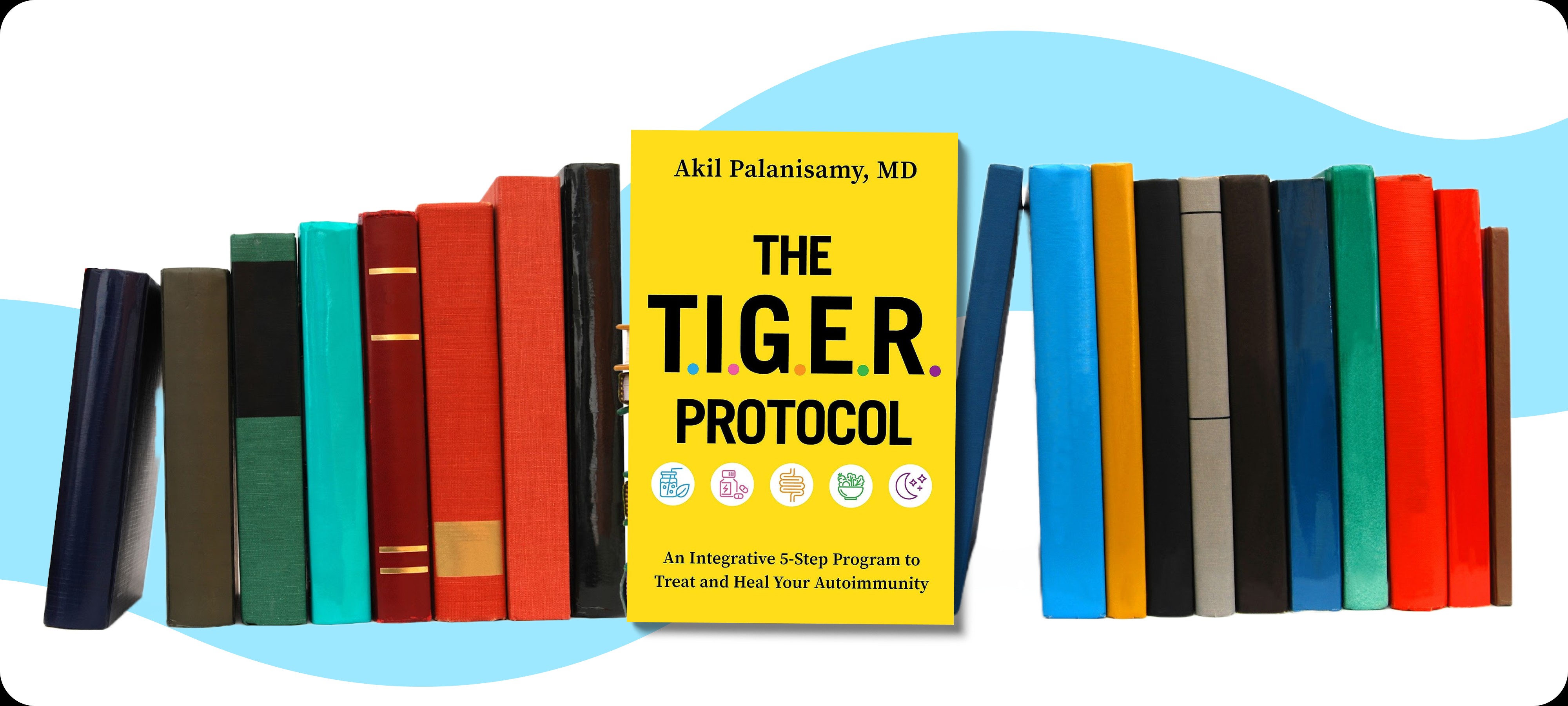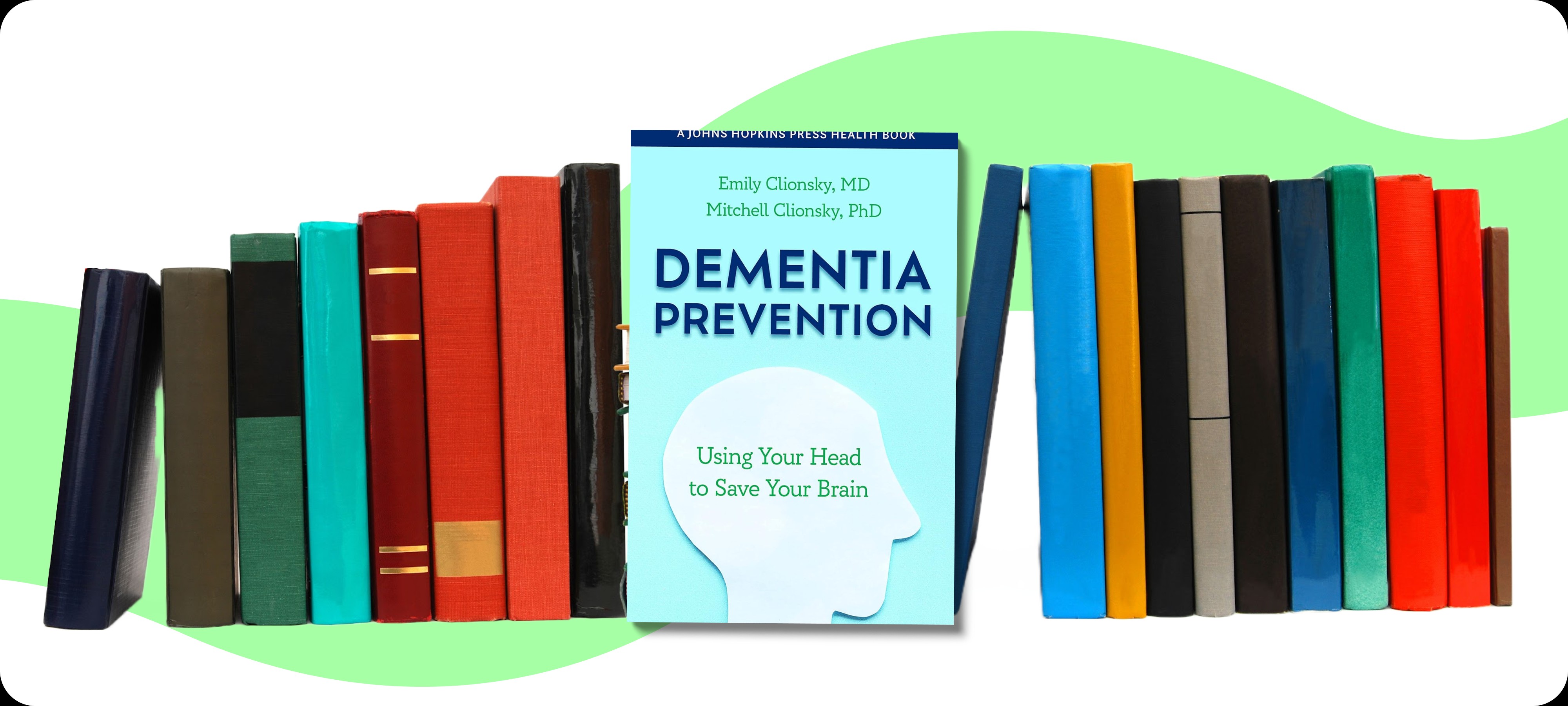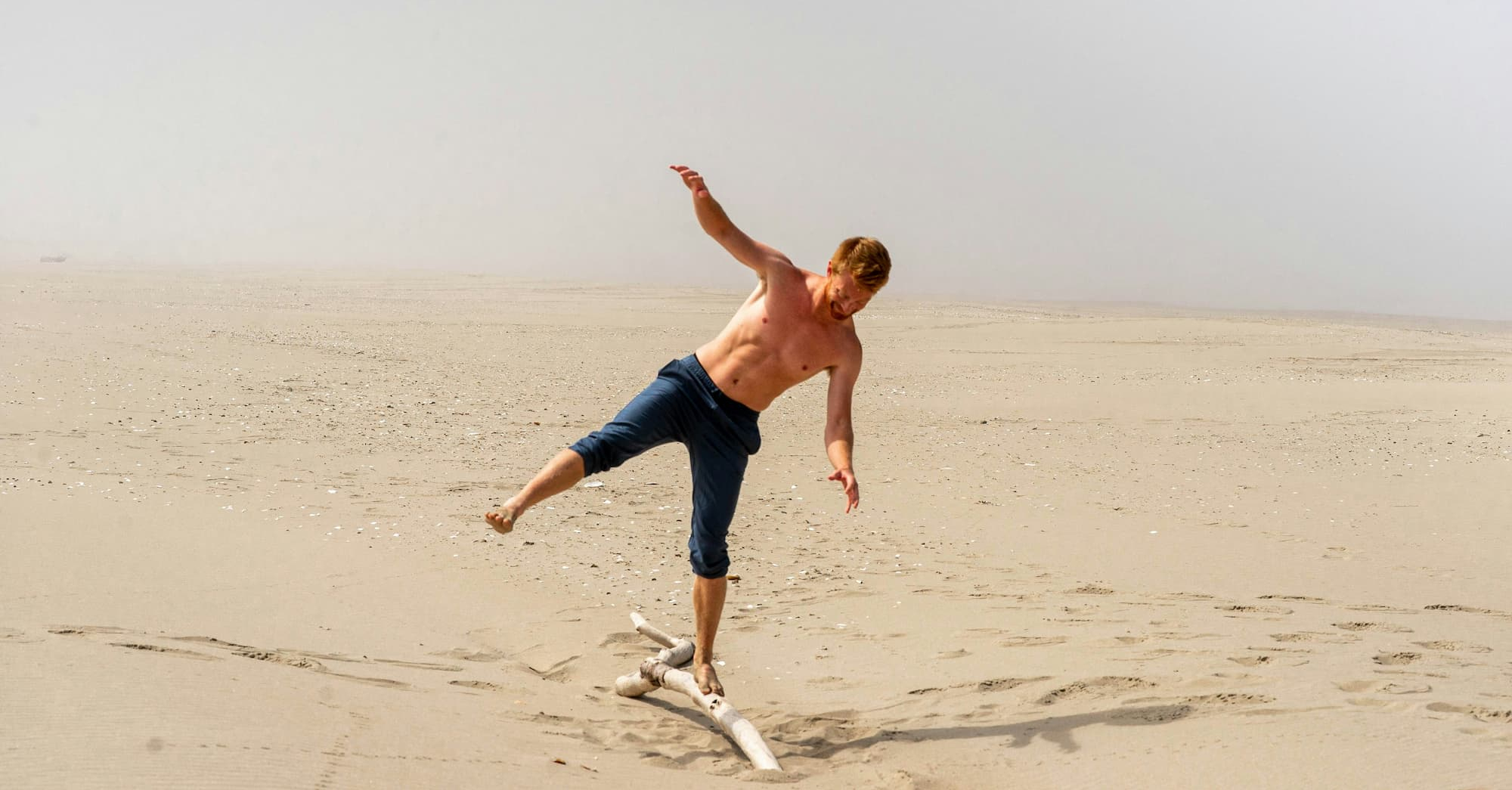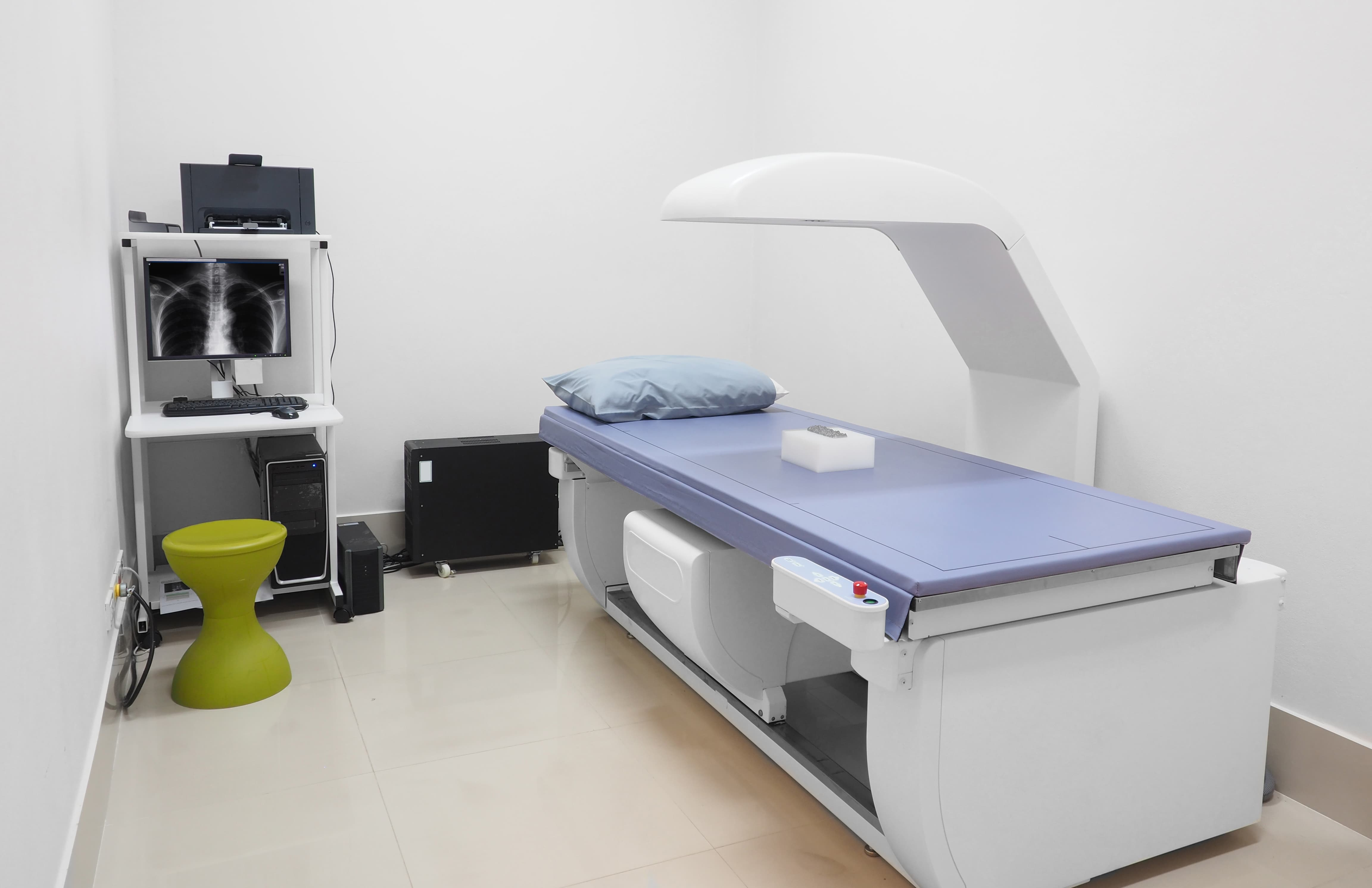Blue Zones are areas of the world where people have a significantly high life expectancy. And if in Great Britain people live to 80 years on average, and in the USA – to 77 years, in the Blue Zones there are more of these long-lived people than anywhere else.
The centenarians of Blue Zones cannot boast of exceptionally good life conditions or deep pockets. What they truly have is a simple, put-together lifestyle and the love of their families. And this seems to be the true recipe for longevity. In this article, we will dive into the seven fundamental longevity lessons that will help you to make one more step towards longevity and health span.
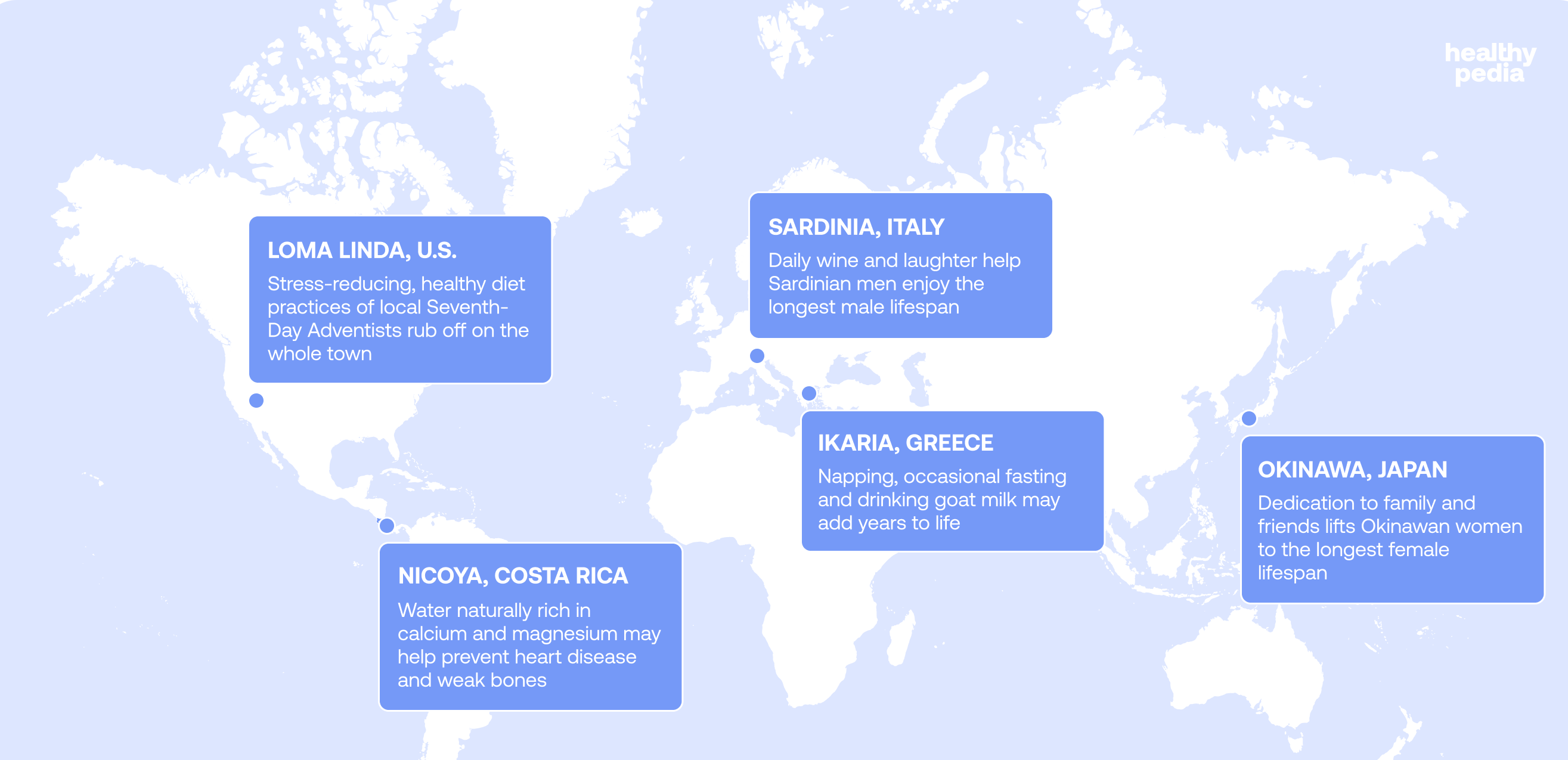
Seven longevity lessons from centenarians

Lesson 1: Move constantly and naturally
The lifestyle of longliners makes them move all day long. For example, Sardinian shepherds have to hike miles to fulfil job tasks. Icarian long-livers engage in gardening and all the food on their tables is homegrown. Gardening keeps them moving as weeding and hoeing really require a lot of physical movement.
Centenarians are not marathon runners or weightlifters, they just have a lot of low-intensity physical activities as a part of their lifestyle. Studies have shown that in healthy adults moderate and high physical activity during leisure time was associated with 4 and 4.5 additional years of life.
 Source: BMC Medicine
Source: BMC Medicine In order to incorporate the first lesson into your daily routine, you should make your life a little bit more complicated. Thus, use stairs instead of a lift, cycle to your destination instead of using a car, have a walking break at work instead of a coffee break, and opt for manual kitchen devices instead of electric ones. All of these small changes will add more movements and keep your body engine running.
Lesson 2: Stop eating when 80% full
Before having a meal, elderly Okinawans often utter the phrase ‘Hara hachi bu’ which can be roughly translated as stop eating when 80% full. This Confucian-inspired adage helps them not to overeat and have one of the lowest calories Blue Zone diet – 1900 calories a day, when, for instance, people of Sardinia consume a similarly lean diet of 2000 calories.
Dr. Craig Willcox, a professor of Public Health and Gerontology at Okinawa International University, points out that this practice could serve as a non-invasive alternative to caloric restriction, which has been demonstrated to extend lifespan in animals and linked to improved cardiovascular health in humans.
Cutting calories may offer several advantages, including weight loss. Even a modest reduction of 10% in body weight can contribute to decreased blood pressure and cholesterol levels, thereby reducing the risk of heart disease.
 Source: Jackson Hospital
Source: Jackson Hospital To put the second lesson into practice, you may try to make your portion look bigger (when, in fact, it is smaller) by buying smaller plates and narrower glasses. Other pieces of advice on incorporating this lesson might be eating slowly and buying snacks in smaller packages.
In one of Wansink’s studies, a group of people was given either a big bag or a small bag of M&Ms and was said to eat as much as they wanted while watching a video. The people with the big bag ate an average of 137 M&Ms, while those with the small bag only ate 71. This showed that we tend to eat more when we have larger portions available.
Lesson 3: Prioritise plant-based foods in your diet

People of Blue Zones have plant-based diets with most of the fruit and vegetables being home- or locally grown. They eat really little processed foods as they simply are not available in these regions. Meat is also a rare product on centenarians’ tables and comprises only 5% of their daily diet.
The study of Adventists in Loma Linda examined the life expectancy of vegetarian Adventists and other white Californians. The results showed that vegetarian men and women showcased a 7-year and 4-year longer lifespan than people whose diet contained meat.
To incorporate the third lesson try to go for six servings of vegetables per day, meaning you need to include two servings per meal. One more effective way of consuming more plants is to wash and put them into one-portion containers for easy usage. This can be done with fruit and berries as well as any other veggies. Last but not least, make meat a celebratory food and make legumes your main source of protein.
Lesson 4: Slow down

The Blue Zones explorer – Dan Buettner says that centenarians are emitting an aura of peace and tranquillity. This may be attributed to both: the fact that as they grew older their body parts naturally slowed down and that they are willing to witness and celebrate life’s beauties.
Dan Buettner, in his book The Blue Zones Lessons for Living Longer, mentions “I remember watching Gozei Shinzato pause to watch a brilliant thunderstorm as she washed her breakfast dishes in Okinawa, and Sardinian shepherd Tonino Tola stop to take a long look over the emerald green plateaus below. He’d seen that same sweeping view for almost 80 years, yet still took time every day to appreciate it.”
Slowing downs is really what we have to learn from Blue Zoners. Our contemporary lives have a plethora of ambitions and worries so we sometimes forget to live in the moment and appreciate life around us.
What is the role of slowing down in extending one’s life? Chronic inflammation might explain this connection as it is the body’s reaction to stress. Moderate levels of stress can be beneficial, as they promote healing, fight diseases, and prepare us for challenging situations. However, when stress becomes chronic it can lead to inflammation and lead to our bodies turning against themselves. By reducing life’s pace, chronic inflammation can be kept under control, and theoretically, related diseases like Alzheimer’s, atherosclerosis, diabetes, and cardiovascular conditions can also be prevented.
If you are seeking ways of slowing down try meditation, breathing exercises and mindfulness – when you enjoy a moment make sure to stop and think how good you feel. This technique is used by psychologists who help their patients achieve a feeling of a fulfilled life.
Lesson 5: Find the answer to the question ‘Why do I wake up in the morning?’
The strong sense of purpose owned by people of Blue Zones significantly contributes to their longevity and health span as it wards off stress and lowers the likelihood of developing Alzheimer’s, arthritis, and stroke.
A study of the National Institutes of Health, led by Dr. Robert Butler explored the connection between having a sense of purpose and longevity. Over the course of 11 years, the study followed a group of highly functioning individuals aged 65 to 92. The findings revealed that those who expressed a clear life goal, something that gave them a reason to wake up in the morning lived longer compared to those who lacked such purpose.
Researchers have found that many people express common regrets when their lives are ending. Living an authentic life, cultivating meaningful relationships, and pursuing passions and experiences that bring joy and fulfilment are some of the most familiar regrets people have. So living an authentic life is of utmost importance.
A sense of purpose stems from simple things like having a family, fully engaging yourself in work and achieving your goals, immersing yourself in a hobby you love the most or having a well-put-together life. The sense of purpose is different for everyone but is equally beneficial for all of us.
Lesson 6: Explore religions
Centenarians around the world, regardless of their religious beliefs, have a strong faith that plays a significant role in their lives. Engaging in worship is one of those subtle yet powerful habits that can increase the likelihood of enjoying more healthy and fulfilling years.
Numerous studies have indicated that attending religious services, even as infrequently as once a month, can impact lifespan. The NIH-funded Adventist Health Study found that those who frequently attended church services had a 20% lower likelihood of dying at any age. Individuals who take part in religious services have lower rates of cardiovascular disease, depression, stress, and suicide as well as stronger immunity.
To put the sixth lesson out of the door, you may try to take on some additional responsibilities in your religious community. If you do not belong to any confession or have a negative experience with it, you may try to opt for beliefs that are not based on extremely strict dogmas.
Lesson 7: Prioritise family

Centenarians give their families a top priority. In the Blue Zone regions, you may often witness multiple generations living under one roof where grandparents take care of grandchildren and children caring for their elderly moms and dads.
When elders reside with their children, they experience lower susceptibility to diseases, adopt healthier eating habits, exhibit reduced stress levels, and have significantly fewer serious accidents. The MacArthur Study of Successful Aging revealed that older adults who lived with their families displayed sharper cognitive abilities and stronger social skills. These findings underscore the benefits of multigenerational households in promoting overall health and enhancing mental and social functioning in the elderly.
Let’s summarise

Contrary to popular belief, the centenarians in the Blue Zones do not possess extraordinary wealth or living conditions. Instead, they embrace simple lifestyles and prioritise their families. This article explores seven fundamental lessons derived from the Blue Zones that can guide individuals towards increased longevity and improved health. By incorporating these lessons into your daily routines, you can make significant strides not only towards achieving longevity and enhancing your overall well-being but also towards a more enjoyable and authentic life that will make you have no regrets.
Not enough? Here is more
In the book The Blue Zones Solution by Dan Buettner, the author shares invaluable insights and practical strategies to improve your health by adopting the nutrition, lifestyle, and fitness habits observed in the Blue Zones. Drawing from his extensive studies of communities with the world’s longest-lived individuals, such as Okinawa, Sardinia, Nicoya, Ikaria, and Loma Linda, Buettner presents a comprehensive guide on how to transform your well-being.


